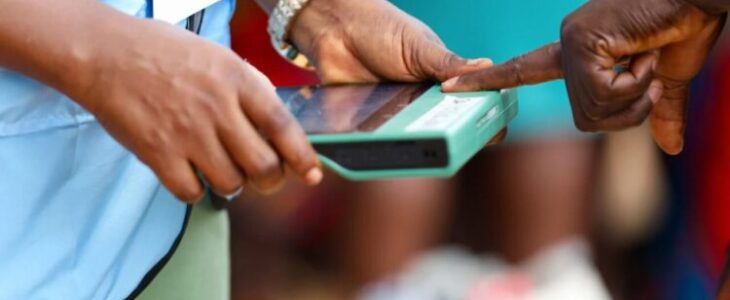
Voters also cast their ballots for 109 federal senators and 360 members of the house of representatives, with another vote for state governors in March.
The election has seen a huge interest from young people – a third of eligible voters are below 35.

Mr Obi, 61, is hoping to break up Nigeria’s two-party system after joining the Labour Party last May.
Although he was in the PDP before then, he is seen as a relatively fresh face and enjoys fervent support among some sections of Nigeria’s youth, especially in the south.

The wealthy businessman served as governor of the south-eastern Anambra State from 2006 to 2014. His backers, known as the “OBIdients”, say he is the only candidate with integrity, but his critics argue that a vote for him is wasted as he is unlikely to win.
Instead, the PDP, which ruled until 2015, wants Nigerians to vote for Atiku Abubakar, 76 – the only major candidate from the country’s mainly Muslim north.
He has run for the presidency five times before – all of which he has lost. He has been dogged by accusations of corruption and cronyism, which he denies.
Most of his career has been spent in the corridors of power, having worked as a top civil servant, vice-president and a prominent businessman.
Most people consider the election a referendum on the APC, which has overseen a period of economic hardship and worsening insecurity.
Its candidate, Bola Tinubu, 70, is credited with building Nigeria’s commercial hub Lagos, during his two terms as governor until 2007.
He is known as a political godfather in the south-west region, where he wields huge influence, but like Mr Abubakar, has also been dogged by allegations of corruption over the years and poor health, both of which he denies.
A candidate needs to have the most votes and 25% of ballots cast in two-thirds of Nigeria’s 36 states to be declared the winner.
Otherwise, there will be a run-off within 21 days – a first in Nigeria’s history.
